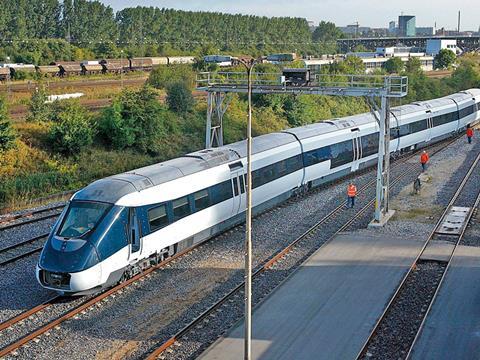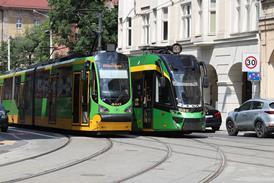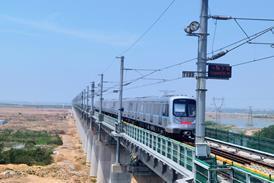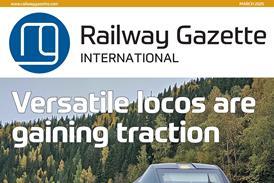
DENMARK: National passenger operator DSB has supplied the Ministry of Transport with an assessment of the rolling stock needed under the government’s Togfonden DK strategy. This aims to use taxes on hydrocarbon extraction to fund electrification and infrastructure works to provide 1 h journey times between Denmark’s main cities.
The ‘Fremtidens Tog’ (Future Train) report sets out rolling stock requirements to 2030, focusing on realising the benefits of electrification while minimising procurement risk in the wake of the IC4 DMU problems which ‘no-one, least of all DSB itself, wants to repeat’, according to Operations Director Anders Egehus.
The report considers seven scenarios, which are dependent on decisions including whether the maximum speed of trains should be 200 km/h or 250 km/h and whether the focus should be on through trains or connecting services. There would be a 25% increase in train seats by 2030, to handle an anticipated 50% increase in passenger-km.
Excluding København S-Tog services, DSB estimates that about 275 new trainsets of two or three types would be required by 2030: around 140 regional trainsets with a maximum speed of 160 km/h, a 200 km/h long-distance design, and possibly a 250 km/h fast train. The cost would be DKr20bn to DKr22bn. The Øresund EMUs would be retained, along with a small fleet of DMUs. This would result in a more homogeneous fleet than at present, bringing economies of scale and operational flexibility.
DSB says that future trains should be based on proven product platforms as far as possible, with ‘thorough pre-qualification’ of potential suppliers and at least some maintenance undertaken by the supplier.
DSB said that it wants the development of its rolling stock strategy to be as ‘open as possible’. It will undertake further work to develop a procurement strategy after the report has been approved by the ministry.
PA Consulting Group, Interfleet Technology and Boston Consulting Group assisted in preparing the report, with legal advice from Kromann Reumert and external review by Deloitte. SCI Verkehr undertook a review of EMU procurement over the last 15 years.




















